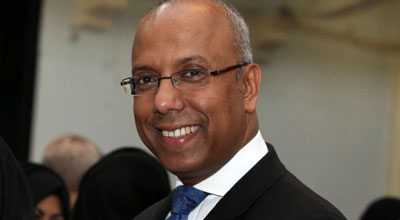Bangladesh upholds death penalty of JI leader
 Bangladesh’s highest court Tuesday upheld the death sentence against a Jamaat-e-Islami (JI) leader for war crimes during the country’s battle for independence, prompting his opposition party to call a general strike in protest.
Bangladesh’s highest court Tuesday upheld the death sentence against a Jamaat-e-Islami (JI) leader for war crimes during the country’s battle for independence, prompting his opposition party to call a general strike in protest.
Ali Ahsan Mohammad Mujahid could now be hanged within months after the Supreme Court dismissed his appeal against the sentence for the murder of scores of intellectuals during the 1971 conflict.
The 67-year-old is one of about a dozen leaders of Jamaat-e-Islami, a key opposition group, convicted by a controversial war crimes tribunal set up by the Hasina’s government in 2010.
The convictions have triggered the country’s deadliest violence since independence with some 500 people killed, mainly in clashes between Jamaat activists and police.
Security was tight ahead of Tuesday’s ruling, with heavily armed police and border guards surrounding the court in Dhaka and patrolling nearby streets. But widespread violence was unlikely following a recent crackdown against the opposition by Prime Minister Sheikh Hasina’s government.
Jamaat, thousands of whose supporters have been arrested in the crackdown, called the strike for Wednesday, branding the trial of its general secretary “farcical”.
“Mujahid is a victim of the government’s conspiracy,” Jamaat’s acting chief Moqbul Ahmed said in a statement. Mujahid was found guilty in 2013 of leading Al Badr, a notorious pro-Pakistani militia that carried out “exterminations” of Bangladeshi intellectuals including top writers, journalists and professors towards the end of the nine-month war.
Prosecutors said Mujahid now faces the gallows within months unless his case is reviewed by the same court or he is granted clemency by the president.
“Souls of the war martyrs can finally now rest in peace after today’s verdict,” prosecutor Mokhlesur Rahman Badal told AFP outside the court.
The court has swiftly dismissed previous reviews of two other senior Jamaat officials on death row, leading to their execution, the latest in April this year. Those leaders also declined to seek clemency from the president, saying they did not recognise Hasina’s government.





